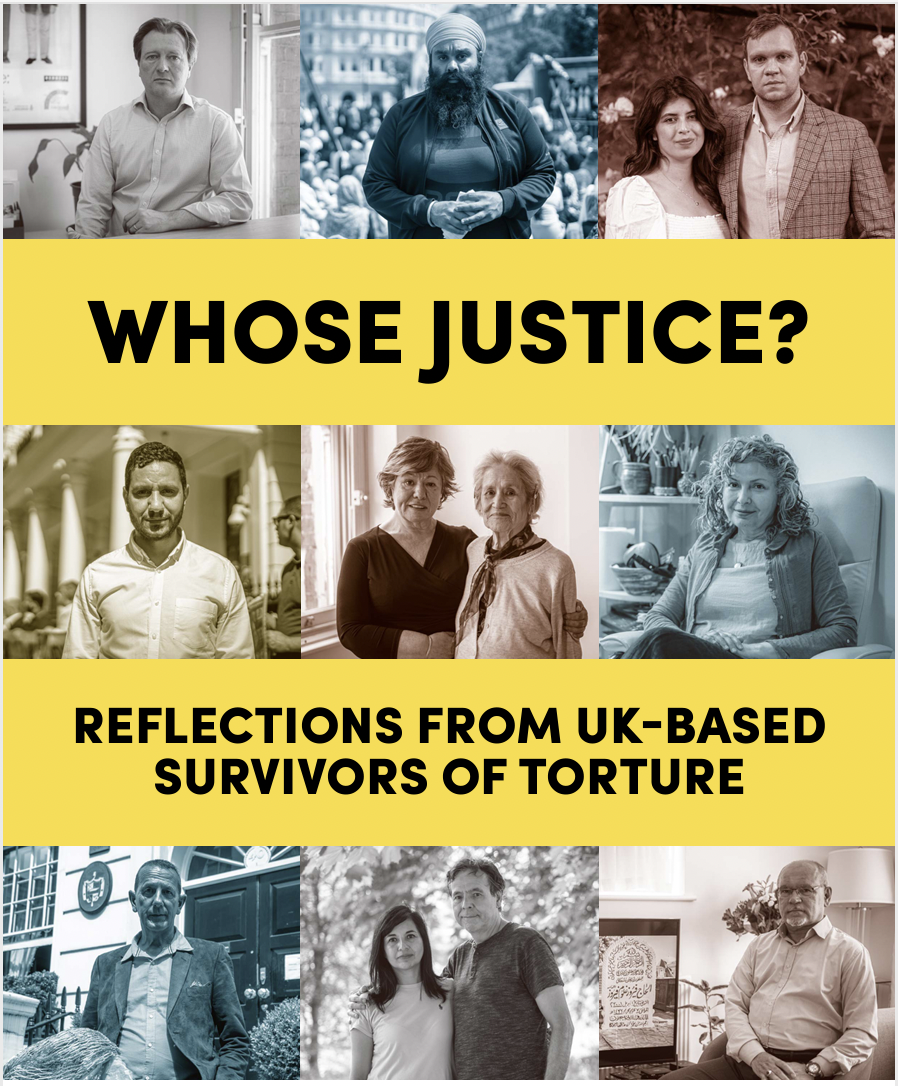
Whose Justice? Report Confirms UK-Based Torture Survivors Differing Views on Justice
The UK is home to between 60,000 and 98,000 survivors of torture in the refugee population alone, according to some studies. A new REDRESS report, Whose Justice? Reflections from UK-based survivors of torture, confirms that contrary to common assumptions, UK-based torture survivors are not a homogeneous group, and their views on the meaning and importance of justice can differ greatly.
Lo Riches, Policy and Advocacy Officer at REDRESS, who led the research, said:
“Our research indicates that justice to one survivor of torture may look entirely different from the perspective of another, and it doesn’t exist a ‘one-size fits all’ approach to justice. This is why it is crucial to put survivors’ voices and experiences at the heart of processes to deliver justice and reparations to them, so there isn’t a misalignment which can be re-traumatising rather than empowering.”
As one anonymous torture survivor interviewed for the report noted:
“The aim of justice as well can be a barrier if the objective is set by somebody else. If there is a different type of justice to survivors, it would be good to understand when asking survivors – which type of justice are you willing to seek? Then more people may be able or willing to seek it.”
The report sought the views of 17 survivors of torture and their family members in the UK on what justice meant to them in practice, why it was important, and what were their key barriers to achieving justice within the UK. Four professionals who work with survivors of torture in the UK were also interviewed. The report, who sought their views on the existing five forms of reparation in relation to torture under international law (restitution, compensation, rehabilitation, satisfaction, and guarantees of non-repetition), confirms previous findings of research undertaken on this issue, including by REDRESS in 2001, 2004 and 2009.
Not all survivors interviewed were able to access justice due to the lack of available mechanisms, and many who were able to access justice in some form faced significant barriers. The vast majority of survivors interviewed, including both those who have been able to access justice in some form, felt that the most significant barrier to justice is a lack of political will on the part of States.
Some of the key findings of the report are:
- All survivors interviewed stated without exception that they wanted justice for the torture they experienced.
- When asked why justice was important, almost all emphasised the importance of accountability and prevention: ensuring that perpetrators cannot torture again.
- Very few survivors sought justice explicitly in the form of punishment for perpetrators. Whilst some survivors preferred to establish the truth through criminal prosecutions, others preferred obtaining a meaningful apology.
- Many survivors thought that justice was central to “set the record straight”. Obtaining an acknowledgement and recognition of what happened to them was important to address the disbelief that they often face about the torture they suffered or State-run disinformation or smear campaigns to discredit them and their testimony.
- Significantly, compensation was often secondary to accountability, prevention, and acknowledgement, but some survivors felt that States were increasingly using compensation as a way to escape more meaningful accountability and measures of prevention.
- Rehabilitation was uniformly considered essential to survivors, although a number of survivors did not view this as part of ‘justice’, as they saw it more as a personal journey that had nothing to do with the perpetrators.
The report also confirms that survivors of torture based in the UK continue to face a number of significant challenges in daily life as a direct or indirect result of torture. This includes difficulties accessing specialist support and services for physical, psychosocial and mental health difficulties.
Juan Méndez, former UN Special Rapporteur on torture and other cruel, inhuman and degrading treatment or punishment and a survivor of torture, notes in the Foreword of the report, that where there is a misalignment between ‘justice’ as understood by existing legal and reparative mechanisms, and survivors’ own perceptions of what justice means to them in practice:
“… there is a significant risk that pursuing ‘justice’ for survivors can be traumatic and promote ongoing victimisation rather than empowerment.”
Lo Riches added:
“We hope that this report will contribute to a greater understanding of the breadth of the differences across survivor perspectives on justice, highlighting where there is likely to be agreement and differing views amongst survivors of torture, and that this helps inform discussions about the best way to deliver justice and reparations to survivors.”
For queries on the report, please contact: [email protected], or for media queries, please contact Eva Sanchis, Head of Communications, on [email protected] or 020 7793 1777.
REDRESS is very grateful to the People’s Postcode Trust for providing the funding for this report.
